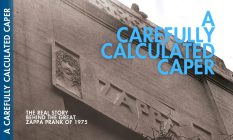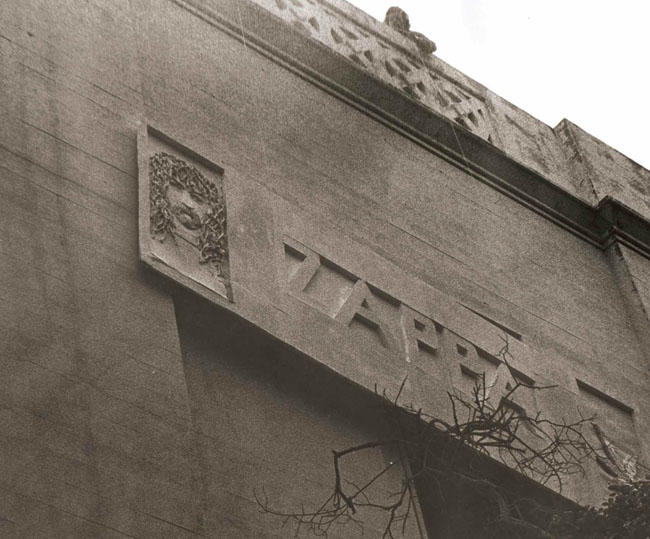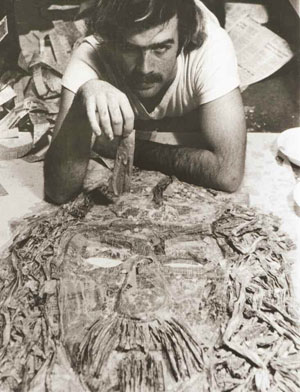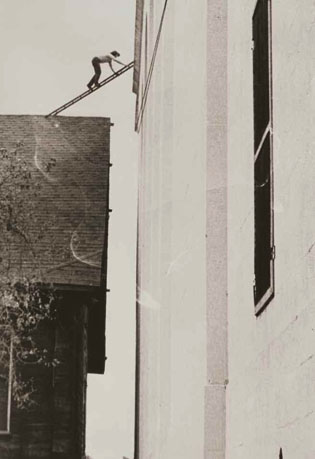A recipient of the Udall Scholarship and a Rhodes and Marshall finalist, Lena Connor ’13 is a double major in environmental analysis and politics, with a minor in religious studies. Connor was among the first group of students awarded fellowships for full-time summer internships, funded by gifts to the Daring Minds campaign. She spent last summer working as a theological researcher for the National Council of Churches, where she put together the first comprehensive database of Protestant ecotheologians in the U.S. Connor, who grew up in Florida and Iowa, is commissioner of environmental affairs for Student Senate, a leader of the Pomona Student Union and a member of Uprising Christian Fellowship and the Pomona College Choir
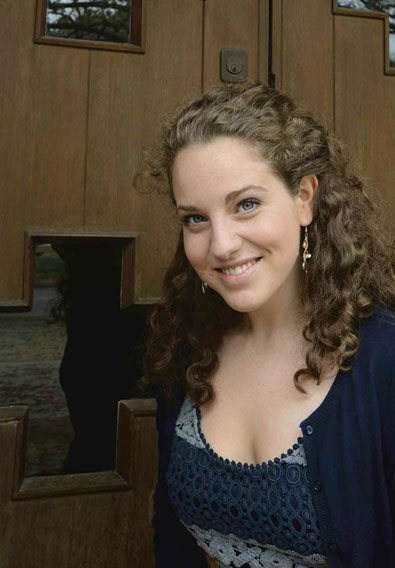 Shifting focus
Shifting focus
When I first came to Pomona, I was interested in the policy side of the environmental movement. But after I started classes, I shifted my focus. Coming from a very conservative part of the U.S., I saw that a lot of political impasses have deeper roots in people’s cultural and religious ways of viewing resources, and in the way we organize societies and make economic decisions. I became more interested in getting to the roots of some of those problems after taking a class from Professor Char Miller and reading authors like Wendell Berry.
Finding inspiration
The summer after my sophomore year, I got a Mellon grant to study bauxite mining in Brazil. When I got there, I realized that the most important actors in mediating conflict and advocating for the rural farmers were the Franciscan priests. I had been disenchanted with Christianity’s ability to do much about the environment in the U.S., partly because of apathy and because the issue had been so politicized. Being in Brazil refreshed my spirit and inspired me, because I’d seen a group of Christians who could incorporate ecological and Christian ethics and have their parishioners accept and embrace it.
From the rainforest to Oxford University
I designed a one-on-one tutorial at Oxford with an emphasis on environmental ethics and spent hours and hours in libraries reading through theological texts. It was one of most emotionally and intellectually fulfilling experiences of my college career, and I decided then I wanted to study the intersection of religion and environmentalism for the rest of my life. The people who suffer from environmental degradation are often the poorest, and there is a link in Christian theology between renewal of the earth and caring for the marginalized.
Transforming practical experience into a senior thesis
My internship with the National Council of Churches gave me a more nuanced and informed look at how academic theology and nonprofits interrelate, and how you get ecotheological theory from the ivory tower to the pulpit and into the political realm of discourse. I also attended a conference in Pennsylvania, where a Lutheran synod created a task force to study the controversial gas extraction method known as “fracking” and passed a resolution for a moratorium against it. I interviewed the congregants and pastors about the church’s appropriate role, which along with my experience in Brazil, became part of my senior thesis.
What is really valuable
Pomona, more than anything else, has taught me that this track that we’re on is not just a superficial endeavor about wealth or success or worldly glory. In my time here, I’ve been instructed by people who are grounded in what is really valuable in life. When I leave and go to graduate school and enter into what I would like to do, which is becoming ordained and doing academic ecotheology, I want to carry on what Pomona has given me by focusing on something in a deep and meaningful way.
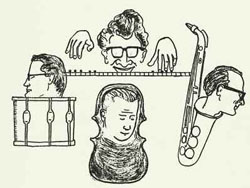
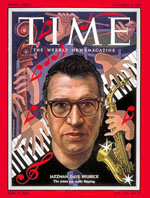 But paying the musicians required a paying audience. Steve Glass ’57 and subsequently professor of classics at Pitzer College, recalls that early ticket sales for the Brubeck concert were going slowly. His classmate and future wife Sandy was in charge of publicity and she was worried. In those days, West Coast/Cool Jazz was a relatively arcane phenomenon. Then, shortly before the concert, the Nov. 8, 1954 issue of Time magazine had Dave Brubeck on the cover, only the second jazz musician to be so featured (after Louis Armstrong), and the place was packed.
But paying the musicians required a paying audience. Steve Glass ’57 and subsequently professor of classics at Pitzer College, recalls that early ticket sales for the Brubeck concert were going slowly. His classmate and future wife Sandy was in charge of publicity and she was worried. In those days, West Coast/Cool Jazz was a relatively arcane phenomenon. Then, shortly before the concert, the Nov. 8, 1954 issue of Time magazine had Dave Brubeck on the cover, only the second jazz musician to be so featured (after Louis Armstrong), and the place was packed. The O.J. flowing in campus dining halls these days doesn’t come from frozen concentrate, nor was it born thousands of miles away in Florida.
The O.J. flowing in campus dining halls these days doesn’t come from frozen concentrate, nor was it born thousands of miles away in Florida. Trees, Ph.D.s and … country? Claremont is a long way from Nashville, but this school year brings two country superstars to
Trees, Ph.D.s and … country? Claremont is a long way from Nashville, but this school year brings two country superstars to 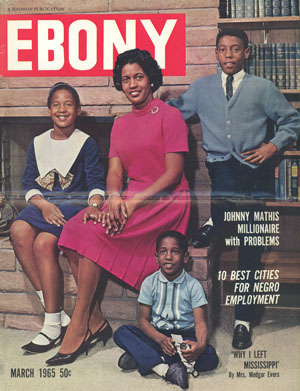 This year marks the 50th anniversary of the assassination of her husband, civil rights activist Medgar Evers, who was shot in the back outside their Jackson, Miss., home on the morning of June 12, 1963, while Myrlie and their three children were inside.
This year marks the 50th anniversary of the assassination of her husband, civil rights activist Medgar Evers, who was shot in the back outside their Jackson, Miss., home on the morning of June 12, 1963, while Myrlie and their three children were inside.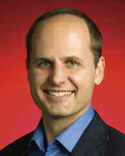 Laszlo Bock ’93 is senior vice president of people operations at Google, leading the attraction, development and retention of “Googlers.” He also leads or has led various business groups at Google, including the services group, technology and operations and other areas. At Pomona, Bock majored in international relations, and served as a residence hall sponsor and in student government and Mortar Board. Bock, who lives in the Bay Area, has an M.B.A. from the Yale School of Management, and has testified before Congress on immigration reform and labor issues. In 2010, he was named “Human Resources Executive of the Year” by HR Executive Magazine.
Laszlo Bock ’93 is senior vice president of people operations at Google, leading the attraction, development and retention of “Googlers.” He also leads or has led various business groups at Google, including the services group, technology and operations and other areas. At Pomona, Bock majored in international relations, and served as a residence hall sponsor and in student government and Mortar Board. Bock, who lives in the Bay Area, has an M.B.A. from the Yale School of Management, and has testified before Congress on immigration reform and labor issues. In 2010, he was named “Human Resources Executive of the Year” by HR Executive Magazine.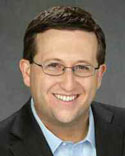 Sam Glick ’04 is an associate partner at Oliver Wyman, a leading global management consulting firm, advising clients in the healthcare and life sciences industries. An economics major and classics minor at Pomona, Glick graduated with distinction, and as a student was ASPC academic affairs commissioner, judiciary council chair, member of the presidential search and senior class gift committees, and a director of the Claremont Community Foundation. Glick previously served on the board as young alumni trustee from 2007 to 2011. He lives in San Francisco with his wife, Emily (George) Glick ’04.
Sam Glick ’04 is an associate partner at Oliver Wyman, a leading global management consulting firm, advising clients in the healthcare and life sciences industries. An economics major and classics minor at Pomona, Glick graduated with distinction, and as a student was ASPC academic affairs commissioner, judiciary council chair, member of the presidential search and senior class gift committees, and a director of the Claremont Community Foundation. Glick previously served on the board as young alumni trustee from 2007 to 2011. He lives in San Francisco with his wife, Emily (George) Glick ’04.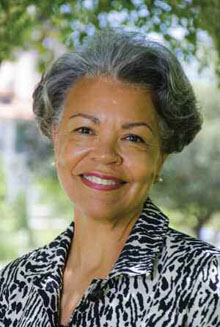 A trustee since 1999, Buckley could have reasonably expected to be winding down, pulling back a bit, as she completes the final few years of her term. Instead, the Santa Rosa, Calif., resident agreed to step up to the role of board chair.
A trustee since 1999, Buckley could have reasonably expected to be winding down, pulling back a bit, as she completes the final few years of her term. Instead, the Santa Rosa, Calif., resident agreed to step up to the role of board chair.